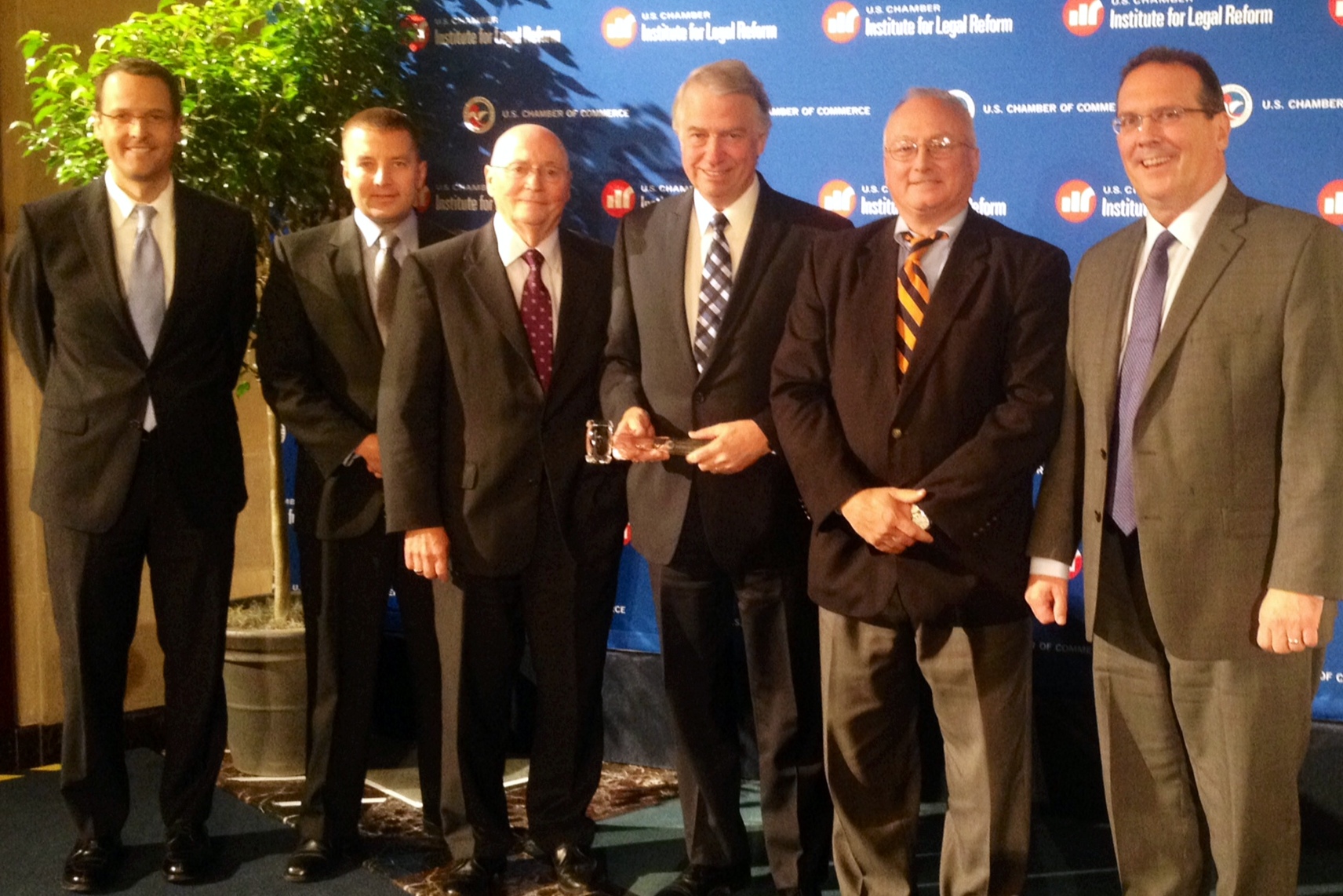Building off of the historic reforms signed into law in 2011-12, Gov. Scott Walker on Friday, December 13 signed three more important civil justice reforms into law. Below is a summary of each bill signed into law by Gov. Walker:
- Transparency in Private Attorney Contracting (AB 27): Authored by Rep. Mike Kuglitsch (R-New Berlin) and Sen. Glenn Grothman (R-West Bend), AB 27 reins in excessive attorneys’ fees by setting tiers for contingency fees as a percent of recovered amounts ranging from 25% to 5%. Transparency is achieved through the requirement that a copy of the executed fee contract be posted online. In addition, the private attorney must maintain time records and keep detailed records of expenses, disbursements, etc. for four years after the contract terminates.
- Physician’s Duty of Informed Consent: Overturning Jandre v. Wisconsin Injured Patients and Families Compensation Fund (AB 139): Authored by Rep. Jim Ott (R-Mequon) and Sen. Glenn Grothman (R-West Bend), AB 139 protects Wisconsin physicians and hospitals from unnecessary and costly lawsuits. Passed on a bipartisan vote, AB 139 overturns a Wisconsin Supreme Court decision and clarifies the proper standard for physicians when informing patients of alternate medical modes of treatment and about the benefits and risks of those treatments.
- Lemon Law Reforms (AB 200): Authored by Rep. Bill Kramer (R-Waukesha) and Sen. Jerry Petrowski (R-Marathon), AB 200 removes Wisconsin’s previously dubious reputation of having the worse lemon law in the nation. The new law makes a number of changes, including: 1) eliminating mandatory double damages, 2) adding time for manufacturers to deliver a comparable vehicle, 3) reducing the statute of limitations, 4) adding a good faith requirement, and 5) clarifying what it means for a vehicle to be out of service.
“The Wisconsin Civil Justice Council thanks Gov. Walker for his continued commitment to enhancing the state’s litigation climate and making Wisconsin a more attractive place to start and grow a business,” said Bill G. Smith, WCJC President and State Director of the National Federation of Independent Business.

